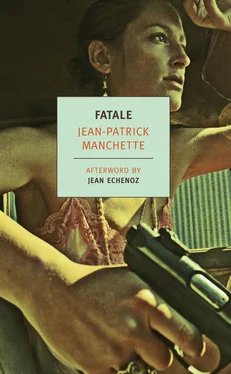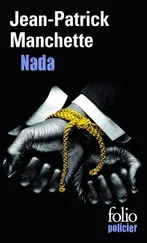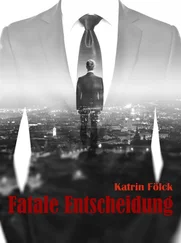Jean-Patrick Manchette - Fatale
Здесь есть возможность читать онлайн «Jean-Patrick Manchette - Fatale» весь текст электронной книги совершенно бесплатно (целиком полную версию без сокращений). В некоторых случаях можно слушать аудио, скачать через торрент в формате fb2 и присутствует краткое содержание. Год выпуска: 2011, ISBN: 2011, Издательство: New York Review Books, Жанр: Криминальный детектив, на английском языке. Описание произведения, (предисловие) а так же отзывы посетителей доступны на портале библиотеки ЛибКат.
- Название:Fatale
- Автор:
- Издательство:New York Review Books
- Жанр:
- Год:2011
- ISBN:978-1-59017-572-9
- Рейтинг книги:5 / 5. Голосов: 1
-
Избранное:Добавить в избранное
- Отзывы:
-
Ваша оценка:
- 100
- 1
- 2
- 3
- 4
- 5
Fatale: краткое содержание, описание и аннотация
Предлагаем к чтению аннотацию, описание, краткое содержание или предисловие (зависит от того, что написал сам автор книги «Fatale»). Если вы не нашли необходимую информацию о книге — напишите в комментариях, мы постараемся отыскать её.
Fatale — читать онлайн бесплатно полную книгу (весь текст) целиком
Ниже представлен текст книги, разбитый по страницам. Система сохранения места последней прочитанной страницы, позволяет с удобством читать онлайн бесплатно книгу «Fatale», без необходимости каждый раз заново искать на чём Вы остановились. Поставьте закладку, и сможете в любой момент перейти на страницу, на которой закончили чтение.
Интервал:
Закладка:
“So old Lenverguez has two good reasons, doesn’t he,” DiBona asked him, “for not clasping you to his bosom? There’s your articles, and then there’s his wife…”
Sinistrat smiled, making no effort to contest the insinuation. Then he suddenly put on a serious face.
“This has nothing to do with personal matters,” he said. “Fundamentally, this is political.”
At one o’clock precisely, Lorque and Lenverguez, along with their wives, would enter the brasserie, scan the room with a distant air, share a few friendly handshakes, and go upstairs to take lunch on the second-floor balcony. From the back room, their field of vision limited by the balcony which extended above their heads, DiBona and his allies were obliged, in order to inspect the factory owners’ party, to peer over their glasses and beer mugs and hold up their chins, which gave them a weak and furtive look.
During these days Aimée made no appearance at the Grand Café de l’Anglais, nor anywhere in town, except for a daily trip from her studio to and from a tobacco shop on the harbor front, where she bought the papers and crime novels. The rest of the time she stayed in her apartment doing a little thinking and reading the papers and crime novels.
Early in the morning of the fourth day, she received a telephone call from Baron Jules, who had apparently gone to ground since his interview with DiBona. He sounded nervous, tired, filled, perhaps, by a kind of perverse glee-and bitter.
“Yes,” Aimée told him. “Alright. But maybe you would rather come over here?” The baron said no. “Whenever you like then,” replied Aimée. “Right away, if you wish.” But the baron demurred, and said he would rather she came at exactly five o’clock. “That’s fine,” said Aimée.
She spent the day in her studio, reading, then watching a television show designed to edify housewives and an episode from a stupid and restful American series. At four o’clock she opened a can of corned beef and ate the contents. Then she went out. She went by the tobacco shop for the papers. The Dépêche had new revelations, accusing
Maître Lindquist of corruption and calling for the opening of judicial investigations into Lorque and Lenverguez and the attorney-realtor. Aimée got on her Raleigh and rode to the baron’s. He met her on the front steps.
“Could you stay for a while?” he asked immediately. “Till eight o’clock?”
“I don’t know,” replied Aimée.
The baron was wearing wide-striped pants and a blue seaman’s sweater. He was sockless in disintegrating tennis shoes. He had not shaved that morning and tough white whiskers could be seen on his pink cheeks. His features were drawn and his reddened eyes had dark rings beneath them. He seemed unable to stand still. He took Aimée by the arm and led her haphazardly through the garden. It was a mild day. The sky was a low and uniform gray. From far-off fields of stubble came the throb of a tractor’s engine.
“It’s coming from me, everything they are putting out in the Dépêche ,” said the baron.
“Oh, I don’t doubt it.”
“You should be happy.”
Aimée shrugged. “Yes.”
“Well, I am not happy,” said the baron.
“No?” Aimée shook her head.
“There’s not one of them that can redeem the others,” said the baron. “You really think DiBona deserves to be given ammunition? Do you know what he, DiBona, was doing in 1943?”
“I couldn’t care less.”
“He was turning in Allied parachutists to the Germans.”
“I couldn’t care less,” Aimée repeated.
“You egged me on,” said Baron Jules grumpily. “You pushed me into this. You got me to set one clique against the other. You got me entangled with them. I’m not happy about that.”
“If you’re not happy, you can go fuck yourself,” Aimée suggested. “I’m cold.”
The baron took Aimée’s arm once more. By this time the pair had circled the residence. The baron led the young woman towards a small back door. They went in, climbed three steps, and emerged into the hall where the Weatherby Regency shotgun hung. The baron started up the stairs.
“Just wait,” he said with venomous satisfaction. “You’ll see.”
Aimée followed him up the stairs and then up to the observatory. The stained-glass windows cast colored light on the walls, on the instruments, on the wheeled enameled table on which lay several brown kraft-paper envelopes.
“I’ve been thinking things over, these last three days,” said the baron. “What I’ve revealed about these people amounts to nothing. I can do much better. On the others too I can do far better. I can decapitate this town.”
“So go ahead,” said Aimée in a bored voice.
Smiling, the baron tapped with the flat of his hand on the brown envelopes, which were bulging. Then he stood back and leaned against a wall with his arms crossed. Aimée picked up one of the envelopes. It was marked “Jacques Lorque.” She glanced at a few more of them, marked “DiBona,” “Dr. Claude Sinistrat,” “Lindquist,” and so on.
“They are not sealed. Take a look inside,” said the baron. “Half of them are going to prison, and the rest will have no honor left. Go on, take a look.”
“I’m not interested. I couldn’t care less,” said Aimée, sounding weary and bored, and she pushed the envelopes away.
“Vipers! Swine! Dogs!” cried Baron Jules in a high-pitched voice. He stepped away from the wall in excitement. “They’re all crooks, can’t you see that?”
“Crooks or not. Even if they were honest…” said Aimée. She did not finish her sentence.
“I have called them all here for six o’clock. I’m going to show them what’s in the envelopes. These are all just copies. Wait till you see their faces.”
“Do you plan to sell them the originals?”
“What do you take me for?” yelled the baron.
“Oh, I said that just to get your goat. What are you proposing to do?”
“I’m going to send all this stuff to the Paris papers,” replied the baron. “But first I’m going to show them these copies, make them sweat with fear, so they know what’s coming to them.”
The baron took a few steps, shaking with silent laughter. At that moment the sun, shining through a stained-glass pane, threw a bright streak of scarlet across the baron’s neck. The man looked as though his throat had been slashed. Aimée felt a certainty and an anxiety that made her wobble on her feet.
“Why are you pulling a face?” asked the baron. “Isn’t this what you wanted? It is what you wanted!” he said with conviction. “I don’t get it, but it is what you wanted.”
Aimée wheeled, and tore off down the staircase. Stunned, the baron did not move for a moment. Then he raced down the stairs in pursuit.
“Don’t deny it!” he cried. “I know you wanted this!”
“Leave me alone. Get away from me,” said Aimée as she crossed the hall at top speed, passing the Weatherby Regency mounted on the wall.
She left the house, leaped onto her Raleigh. For a second time she rode off the property with the baron, now out on the front steps, calling vainly after her.
“They’ll be here in twenty minutes,” he shouted. “Stay! You’ll see them go white about their ugly gills. Stay!”
Aimée disappeared. The baron let his arms drop to his sides. Thwarted and seeming unsure of himself, he went back inside. Meanwhile, Aimée sped along the road, left the hamlet behind, and headed towards Bléville. After a few hundred meters, she noticed a copse on the right. She braked and put a foot on the ground. Then, holding the bicycle by the handlebars, she left the road. There was no one in sight. She went into the clump of trees and hid there with her bike.
Читать дальшеИнтервал:
Закладка:
Похожие книги на «Fatale»
Представляем Вашему вниманию похожие книги на «Fatale» списком для выбора. Мы отобрали схожую по названию и смыслу литературу в надежде предоставить читателям больше вариантов отыскать новые, интересные, ещё непрочитанные произведения.
Обсуждение, отзывы о книге «Fatale» и просто собственные мнения читателей. Оставьте ваши комментарии, напишите, что Вы думаете о произведении, его смысле или главных героях. Укажите что конкретно понравилось, а что нет, и почему Вы так считаете.












